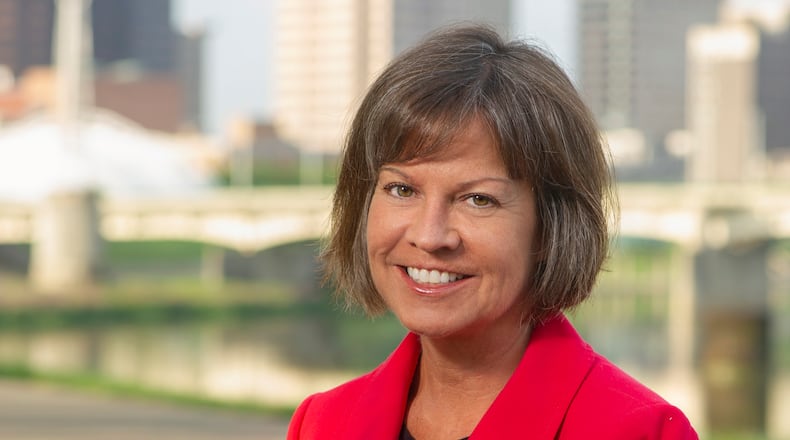To be officially classified as a refugee, a person must flee his or her native country and apply to the United Nations High Commissioner for Refugees (UNHCR) for protection and refugee status. There are many subsequent steps before a refugee ever gets to the United States, including extensive vetting by U.S. government agencies and the highest level of security checks for any category of traveler to the United States. National resettlement agencies (such as the United States Conference of Catholic Bishops) and their affiliates (such as Catholic Social Services here in Dayton) are guided by the U.S. Department of State to provide services that will help refugees gain self-sufficiency as quickly as possible.
The United Nations and the United States give refugees a special protected status, and the U.S. permits them to be here through a special visa that includes authorization to legally hold a job here. They are then expected to get their green card within a year and apply for citizenship after five years.
Newly arrived refugees in Dayton receive supportive services from Catholic Social Services’ resettlement program. This includes placement in initial furnished housing, a cultural orientation overview, employment assistance, and linkage to community resources like schools, ESOL services and medical services.
This is just the tip of the iceberg for many refugees arriving here. Part of our job is to help new arrivals become familiar with things like the public school system, transportation systems, shopping centers, local currency, budgeting, and new social norms. We rely on the expertise of many community partners and volunteers in the areas of health care, housing, employment, education, legal services, and language supports.
Refugees are legally allowed to work immediately upon their arrival in the United States. Our resettlement team works with each individual to assess their existing skills, help them with resumes and job applications, provide job readiness training, and help manage expectations. We also work closely with local employers, to match job skills to the employers’ needs and help ensure a positive experience for the business as well as the new employee.
This month I will celebrate 34 years with Catholic Social Services, including 13 years as CEO. Each program tugs at my heart in unique ways, but the stories of the resettlement program are both heart-breaking and inspiring. I am grateful for our dedicated, hard-working staff and volunteers who are truly a lifeline of support, as well as countless partners and supporters who genuinely care about the people, their stories, and their new lives in our community.
I invite you to learn more, or better yet, join us. A great place to start is on our website, at cssmv.org/services/refugees.
Laura Jordan Roesch is the CEO of Catholic Social Services of the Miami Valley.
About the Author
